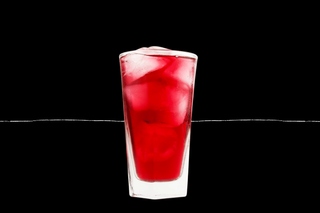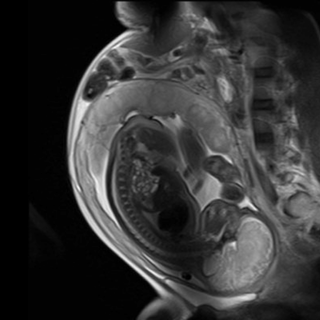
Untrending: Cranberry Juice Is Rich in Vitamins, Antioxidants, but It Won’t Cure a UTI
“It is time to move on from cranberries,” says a urinary tract infection expert.

In Untrending, we side-eye the latest fads so we know what we’re getting ourselves into — and what (if anything) we’re getting out of them.
Cranberry juice has the awkward distinction of being the first association when someone says “urinary tract infection” or “UTI.” The juice is believed to prevent and cure the pesky infection that affects more than 50% of women at least once in their lives. Some research says cranberry juice is rich in proanthocyanidins (also known as condensed tannins), a compound that doesn’t let UTI-causing bacteria adhere to the urinary tract lining.
However, although cranberry juice is delicious and rich with vitamins and antioxidants, there is no solid evidence for the medicinal properties famously ascribed to it.
The history of cranberry juice’s association with urinary tract infections dates back to indigenous medicinal practices from North America, where cranberries are indigenous. Native American tribes used cranberries to cure UTIs for several thousand years. Raw cranberry juice straight from the fruit is quite astringent — a property proven to ease UTI symptoms like inflammation in urinary passages. However, it’s not quite easy to drink raw cranberry juice in amounts large enough to reap such benefits, as the naturally occurring tannins in the fruit dry out the mouth and constrict the throat — as with drinking a glass of wine.
However, the cranberry-based treatment for a UTI infection in the modern world is quite dissimilar to ancient practices. In fact, most cranberry juice today is processed, leading to a potential risk of making the UTI worse. This is because added sugars in processed juices help the UTI-causing E. Coli bacteria to thrive, worsening the infection. Further, clinicians believe that any aid cranberry juice might lend to curing a UTI comes from the fact that it’s a diuretic. This means it causes frequent urination, which is one way the body flushes out bacteria.
Related on The Swaddle:
Untrending: Antioxidants Can’t Cure Cancer, Preserve Youth
While testing the validity of cranberry as a cure for UTIs, a JAMA study observed no reduction in UTIs among women who took high-dose cranberry capsules — the equivalent of 20 ounces (around 600ml) of cranberry juice per day. Researchers at the University of Rochester recommend that people only consume up to 10 ounces (300ml) of cranberry juice daily in order to avoid an upset stomach or diarrhea.
In a separate editorial for the same publication, UTI expert Dr. Lindsay Nichole writes, “[Clinicians] should not be promoting cranberry use by suggesting that there is proven, or even possible, benefit. Clinicians who encourage such use are doing their patients a disservice…. It is time to move on from cranberries.”
Some studies suggesting that cranberry juice is preventative, i.e. it can lower the likelihood of repeated infections, but overall, medical opinions on the same remain mixed — mainly because of the lack of trials that substantiate cranberry juice as prophylaxis. However, doctors believe there’s no harm in trying. “Cranberry won’t hurt, but it may help. It could be worth trying if you struggle with frequent UTIs, as the risk in doing so is very low,” urologist Courtenay Moore, MD, tells Cleveland Clinic.
Finally, much of the scientific research that does extoll the curative power of cranberry juice is funded by cranberry juice companies — including the first link cited in this article that claims cranberry juice’s proanthocyanidins have a solid effect on UTI-causing bacteria. A lot of such funded research employs scientists affiliated with corporate companies that have profit-motivated interests, which reduces the credibility and accuracy of research involved.
While there’s no harm in drinking (sugar-free) cranberry juice — it’s liquid state and natural benefits might ease UTI symptoms and might prevent future infections — if you want your UTI cured, you’ll need to get a prescription from your doctor.
Aditi Murti is a culture writer at The Swaddle. Previously, she worked as a freelance journalist focused on gender and cities. Find her on social media @aditimurti.
Related


Why People With a Savior Complex Sacrifice Their Own Needs to Help Others
